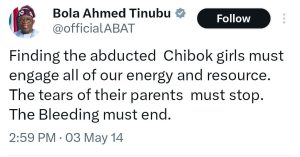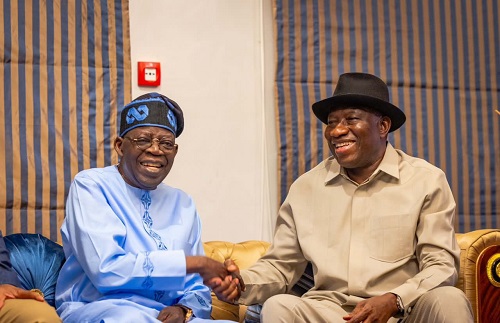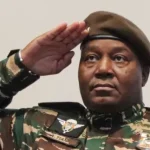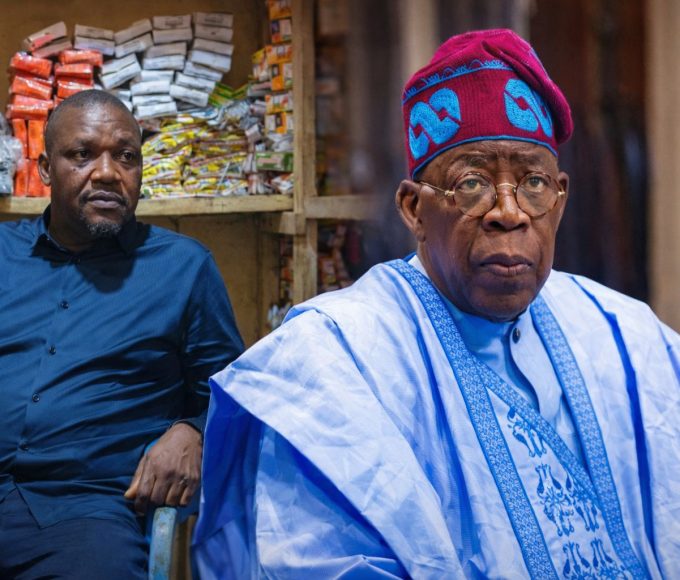The presidency of President Bola Ahmed Tinubu is going through one of its most severe moments as the worsening insecurity, controversies surrounding governance, political turmoil, and international condemnation converge to spark widespread public outrage. The government appears overwhelmed, unresponsive, and increasingly disconnected from the suffering of ordinary Nigerians, even as violence spreads across multiple states.
Attacks have continued in Nigeria. In Kebbi State, 25 schoolgirls were abducted from the Government Girls Comprehensive Secondary School in Maga in a raid at 4 a.m. that left Vice-Principal Hassan Makuku dead and another staff member injured. One of the abducted girls later escaped captivity. The incident is the latest in a troubling pattern of mass school kidnappings that the government has been unable to prevent.
Elsewhere in the country, violence remains unrelenting. In Taraba State, six displaced persons aged between 27 and 65 years were killed in Amadu community by suspected Fulani terrorists, with residents lamenting the daily killings and the slow government response. In Kwara State, heavily armed attackers stormed Eruku town, forcing residents and travellers to flee into the surrounding bushes. In neighbouring Kogi State, a timber supplier and a staff member were abducted in Okoloke, part of a rising wave of kidnappings along the Kwara–Kogi corridor.
Public anxiety was heightened by the killing of Brigadier-General M. Uba by ISWAP militants shortly after he had successfully led a devastating air-and-ground operation in the Sambisa forest axis. Various reports have stated that the terrorists received his coordinates in real time, raising explosive allegations that individuals within the Nigerian military may have betrayed the general. This signals a dangerous collapse of Nigeria’s defence architecture, coupled with a worrying interrelationship between terrorists and elements within the military establishment.
As security crises mounted, so did criticism of the Tinubu administration’s priorities. Just hours after the mass abduction in Kebbi, Vice President Kashim Shettima, representing President Tinubu, travelled to Lokoja, Kogi State, for a political rally to welcome decampees into the ruling All Progressives Congress, APC. Many Nigerians described the decision to attend political merrymaking. At the same time, families mourned, communities panicked, and children remained in captivity as a symbol of a government disturbingly out of touch with national reality.
This is underscored by Tinubu’s own position in 2014 when he fiercely attacked then-President Goodluck Jonathan’s handling of national security. In November of that year, following the abduction of over 270 Chibok schoolgirls, Tinubu declared that Jonathan had shown failure, lack of capacity, vision, and creativity. He insisted that no Commander-in-Chief should allow any part of the country to fall under occupation. He specifically noted the sea of displaced persons caused by Boko Haram insurgents and argued that in any civilised country, a president presiding over such insecurity should resign. Tinubu’s standard was simple: mass kidnappings, growing insurgency, widespread displacement, and a government offering excuses were grounds for resignation.

But in 2025, under Tinubu’s watch, Nigeria is witnessing a replay of the same tragedies he once used to demand a predecessor’s resignation. Mass school kidnappings have resurfaced, communities remain under siege, displacement persists, and high-ranking officers are being killed under suspicious circumstances. Critics argue that the current situation is not only comparable to 2014 but, in some respects, more alarming, given the spread of banditry across numerous states and accusations of internal sabotage within the military.
While this is ongoing, essential public services have deteriorated as striking doctors and JOHESU workers are absent from their duty posts, leaving hospitals wholly or partially incapacitated. Mounting political instability has further deepened public unease. At the PDP national secretariat in Abuja, police officers and thugs barred PDP National Chairman Taminu Turaki and Governors Seyi Makinde and Bala Mohammed from entering the headquarters. After forcing their way in, the leaders were met with volleys of teargas fired by police. Turaki condemned the incident, describing it as a direct attack on Nigeria’s fragile democracy and accusing FCT Minister Nyesom Wike of mobilising police and armed groups to destabilise the opposition. In a dramatic escalation, he called on the international community, including U.S. President Donald Trump, to intervene and save Nigeria from the descent into authoritarianism.
International pressure is also mounting. U.S. Congressman Riley M. Moore accused the Tinubu administration of minimising what he describes as a campaign of Christian genocide, pointing to Sharia law in 12 states and alleging that more than 7,000 Christians were killed in 2025. Moore is pushing for Nigeria’s redesignation as a Country of Particular Concern. This label could trigger sanctions, visa restrictions, and the suspension of military aid unless Abuja shows meaningful progress in protecting threatened communities. The Nigerian government has rejected Moore’s claims as propaganda, insisting that terrorism and criminality, not systematic persecution, drive the violence. Nevertheless, diplomatic relations may deteriorate sharply if Abuja continues to appear dismissive.
READ MORE: Religion and Politics in Nigeria: A Mutual Weapon of Control
From all fronts, security, governance, politics, and diplomacy, the pressure on the Tinubu administration is increasing. The most damaging indictment of the presidency does not come from external critics but from Tinubu’s own words. In 2014, he set the standard by which he believed a leader should be judged. If the armed forces lose control of any territory, if citizens are abducted en masse, if displacement spreads, and if a government offers excuses instead of decisive action, then, in his words, in any civilised country, that leader should resign.
Today, Nigeria faces fresh mass abductions, expanding terrorist attacks, a collapsing health sector, political repression, and allegations of military compromise. If President Tinubu intends to honour the same standard he demanded of Goodluck Jonathan, then by his own measure, he is now confronted with the very test he once posed.
READ MORE: Congo Extends Minerals Trade Ban in Conflict Zones as Pressure Mounts on Global Supply Chains














Leave a comment